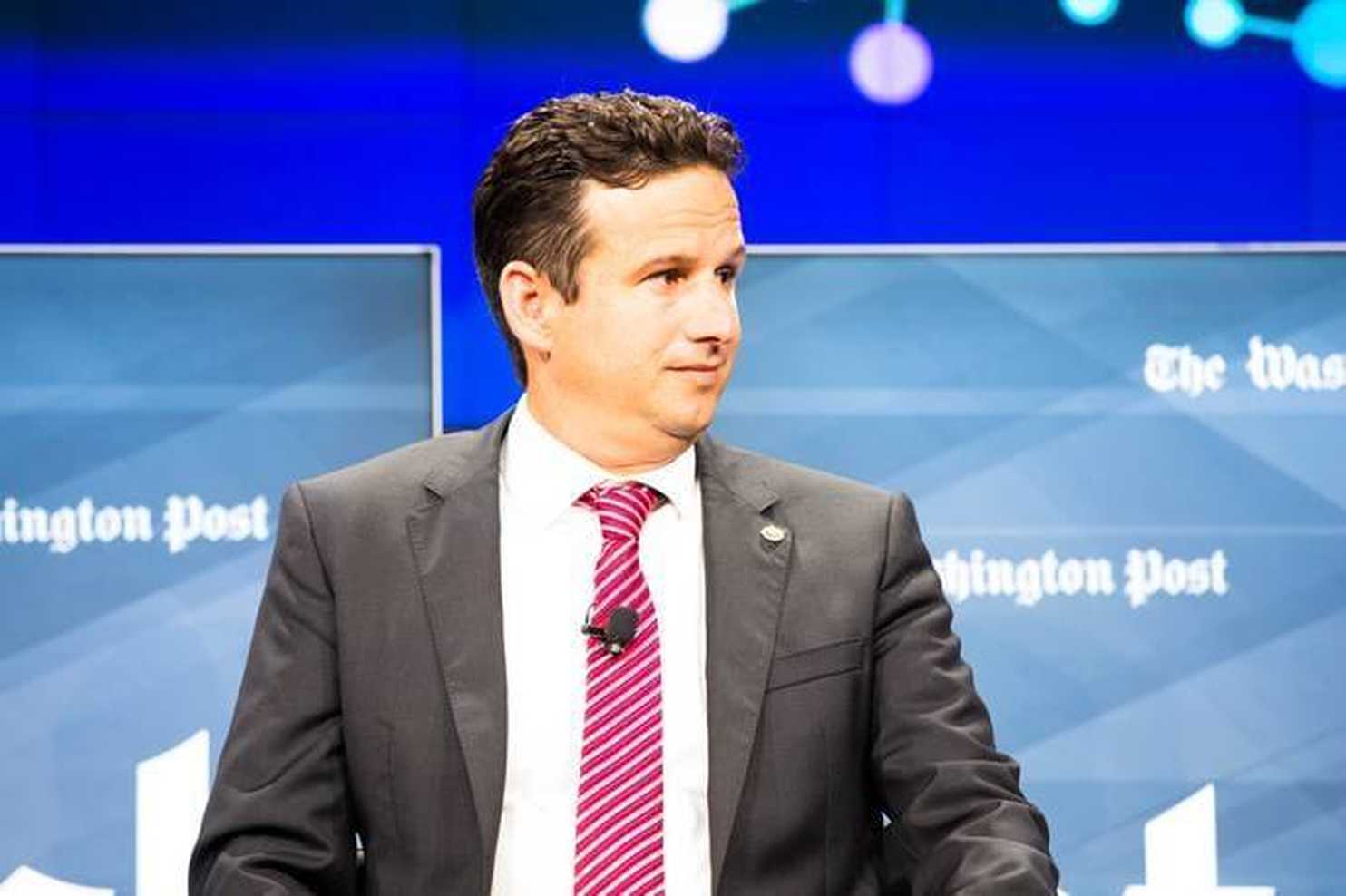with Tonya Riley
Many Republicans and Democrats agree that social networks’ prized legal shield is flawed. A new bill is a sign they could also find common ground to change it.
Sens. John Thune (R-S.D.), the Chair of the Senate Commerce communications subcommittee, and ranking member Brian Schatz (D-Hawaii), introduced legislation yesterday that aims to make major social media companies more transparent about content moderation on their services. The bill would require companies to remove posts and other activity that the courts determine is illegal within 24 hours.
The legislation, known as the PACT Act, is one of the more nuanced proposals on Capitol Hill in the contentious debate over Section 230 of the Communications Decency Act, a 1996 law that protects social networks from litigation over the content that people share on their services. President Trump has recently called for the provision to be revoked outright, and he recently signed an executive order that would direct federal regulators to reexamine its scope.
Sen. Brian Schatz (D-Hawaii) (Keith Lane/For the Washington Post)
Schatz said that the rhetoric around Section 230 in Congress has been “stupid and polarized.”
“Our approach is a scalpel rather than a jackhammer,” he told reporters during a call yesterday. “In my view the best thing we can do for the Internet, and the law that allowed the Internet to happen, is to modify that law so that it works for another 20 years, rather than pretending it’s perfect just as it is.”
Content moderation is now the most divisive tech issue in Washington.
But the senators are hoping that this bill includes provisions that could appease both sides of the aisle. That’s no easy task in an election year, especially one when the companies’ decisions about how to handle rhetoric of a president running for reelection is under the microscope.
“We are pleased with this legislation because we think it can pass,” Schatz told reporters on a phone call yesterday. “We are pleased with this legislation because we think it is time to lower the temperature on the conversation, and start to go through the regular order and actually make a bill, as opposed to making a stand.”
Republicans have accused the tech companies of going overboard in censoring the speech of the president and other politicians. Meanwhile, Democrats say social media companies aren’t doing enough to curtail the spread of disinformation, hate speech, racist rhetoric and other harmful content.
One area of consensus is that the companies’ policies are confusing and unevenly enforced.
Schatz told reporters that lawmakers frequently hear complaints that the companies act like a “black box” and provide limited information about how they make decisions about the content they’re pulling off their services. Under this legislation, the companies would have to create a system that notifies users of moderation decisions within 14 days, and also provides a way for people to appeal those decisions. Smaller companies would be given greater flexibility in responding to the complaints.
It also would also encourage companies to share best content moderation practices with each other, through a National Institute of Standards and Technology-led framework, similar to those that companies already use to share best cybersecurity practices.
It’s one of many proposals floated in Washington that could change Section 230.
The other primary bipartisan initiative is the EARN It Act, which would strip companies of legal protections when their users share materials that exploit children. Lawmakers are set to start reviewing the bill today.
Schatz said there are “significant areas of disagreement” between the EARN It Act and his legislation. He said chief among them is that an industry group would share best content moderation practices under his bill, while the government plays a larger role in the Earn It.
Republicans have also introduced proposals that have not received buy-in from Democrats. The Justice Department recently unveiled its own proposal for restructuring Section 230. Sen. Josh Hawley (R-Mo.) has introduced multiple bills that would change Section 230, largely aiming to hold the platforms accountable for decisions they make that could limit political speech.
Hawley’s office did not respond to a request for comment on whether he would support the PACT Act.
However, the new bill could appeal to Republicans who have raised similar concerns about political speech. “Anyone who is concerned about bias on these platforms will appreciate that this bill would require platforms to give users the ability to appeal a takedown decision and provide an explanation that is linked to their terms of service,” said a Republican Senate aide, who spoke on the condition of anonymity because he was not authorized to speak to reporters about the bill.
It remains to be seen whether the Trump White House will back the bill.
Tech companies have vigorously opposed any attempt to overhaul Section 230.
Netchoice, which lobbies on behalf of companies including Airbnb and Facebook, blasted the bill in the statement.
“By attaching counterproductive strings to Section 230, this bill would make it harder for online platforms to focus on removing harmful content in an especially turbulent election season,” Carl Szabo, vice president and general counsel at NetChoice, said in a statement. “We should enable platforms to remove harmful content, not weigh them down with unnecessary regulations.”
Amy Murphy, the director of federal government affairs at the Internet Association, said she is reviewing the legislation.
The senators consulted academics and consumer groups when crafting the legislation.
Danielle Citron, a professor the Boston University School of Law, has long argued that Section 230 should not be a “free pass,” but rather contingent on companies engaging in reasonable content moderation practices. She said this legislation is a step in that direction.
“The bill does not go far enough for me, but it is a good start on the road to conditioning the legal shield on reasonable content moderation practices in the face of illegality causing clear harm,” she told me.
Jeff Kosseff, who wrote a book on Section 230 called “The Twenty-Six Words That Created The Internet” said this bill addresses criticisms from both parties of Section 230 to some extent.
“It’s definitely not a huge change to 230 like some of the other proposals are,” he said.
Our top tabs
Boston’s city council voted to ban the government from using facial recognition technology.

A mural in tribute to Frederick Douglass in the South End neighborhood of Boston. (Charles Krupa/AP)
Boston is the second-largest city in the United States to ban facial recognition, Ally Jarmanning at WBUR reports. Boston police were not using facial recognition before the ban.
Advocates and researchers have shown that the technology is less accurate when used on nonwhite faces, and they’ve warned it could lead to discrimination in policing. Several cities, including San Francisco, Oakland, Calif., and Sommerville, Mass., have also banned government use of the technology.
The American Civil Liberties Union filed a complaint yesterday claiming a flawed algorithmic facial recognition match led to the wrongful arrest of a man in Detroit, Kashmir Hill at the New York Times reports. The group is calling on the Detroit Police Department to halt is use of facial recognition.
Protests over police brutality following the death of George Floyd have also renewed federal efforts to ban police use of the technology, with Democrats including some limitations on facial recognition in their police overhaul bill.
Democrats are launching an investigation into a data broker’s collection and sale of phone location data.

The Care19 app is seen on a cellphone screen. (Stephen Groves/AP)
Members from both chambers are demanding a trove of documents from Venntel, particularly about its relationships with federal government agencies. The lawmakers say the investigation could cast light on sensitive location data that Americans may be unknowingly turning over during the coronavirus pandemic.
“With Americans installing contact-tracing apps as part of the effort to limit the spread of covid-19, it has become increasingly important to make sure that the American public has a full understanding of who is collecting their location data …[and] what the government is doing with it,” House Oversight Committee chairwoman Carolyn B. Maloney and other Democrats wrote in a letter to the company.
Government agencies such as Immigrations and Customs Enforcement and the FBI can use data brokers such as Venntel to purchase data that would otherwise require a warrant. The Internal Revenue Service has used data from Venntel to track potential criminal suspects, for instance, the Wall Street Journal recently reported.
Rep. Mark DeSaulnier (D-Calif.), as well as Sens. Elizabeth Warren (D-Mass.) and Ron Wyden (D-Ore.) also signed the letter.
A top Facebook executive told advertisers the company has a “trust deficit” amid a growing boycott of its product.

Facebook logo. (Richard Drew/AP)
“There is a trust deficit,” Facebook’s head of trust and safety Neil Potts told an advertiser who asked why they should stay on the platform, Brian Fung at CNN reports. “You try to make a decision and people disagree, and maybe that builds that deficit even deeper.”
About 200 advertisers were on the call, which was convened by the Interactive Advertising Bureau of Canada.
In recent weeks more than half a dozen brands including Magnolia Pictures, Ben & Jerry’s, North Face and Patagonia have pulled advertising from the platform as part of a boycott organized by the NAACP and other civil rights groups. The campaign asks companies to pull spending for the month of July to protest the lack of progress Facebook has made in addressing hostile activity on its platform.
Rant and rave
We’re looking forward to a very long summer. Gizmodo’s Dell Cameron:
Congress in 2020: “Mr. Chairman, you’re muted, we can’t hear you.”
— Dell Cameron BLM (@dellcam) June 24, 2020
Trump tracker
The Trump administration will accuse Huawei of being controlled by the Chinese military.

President Trump. (Jim Lo Scalzo/EPA-EFE/Shutterstock)
The administration also plans to make similar claims about the video surveillance company Hikvision, China Mobile Communications Group and Telecommunications Corp., as well as more than a dozen other companies, Alexandra Alper and Idress Ali at Reuters report. The claims would open the door for the president to impose sanctions on the companies, although the designations would not trigger any penalties.
The Commerce Department already blacklisted Hikvision and Huawei, which U.S. officials have long accused of providing a back door for Chinese espionage. Huawei denies the claim.
The list could escalate tensions between the United States and China already heightened by the coronavirus pandemic.
Inside the industry
Google will now auto-delete search and location history for new users by default after 18 months.

The opening day of a new office of Google in Berlin. (Tobias Schwarz/AFP/Getty Images)
The new settings are part of a broad series of privacy changes rolled out by the company yesterday, The Verge reports. The company began offering the same tools for users to opt-into last year.
Google is under intense scrutiny for its privacy practices both in the United States and in Europe. Last month the state of Arizona sued Google for allegedly tracking users’ locations even if they had turned off location tracking.

Google said it has reached agreements with selected publishers around the world to license news content, a significant development in the yearslong tug of war between the tech giant and media companies.
Wall Street Journal
More industry news:
Workforce report
California’s attorney general will seek an order to immediately force Uber and Lyft to classify drivers as employees.

Vehicles from Uber and Lyft enter the centralized pickup area at Los Angeles International Airport. (Patrick T. Fallon/Bloomberg News)
If a judge approves the preliminary injunction, the companies would have to pay workers for employee benefits and protections before a court date, Bloomberg reports. The state of California sued the two companies last month for allegedly violating a law that would reclassify its many contractors as employees. A trial is currently set for August.
Lyft told Bloomberg it would fight the injunction.
More workforce news:
Bookmark this
Daybook
- The Bridge and All Tech is Human will host a discussion on Section 230 today at 12 p.m.
- The Senate Judiciary Committee will markup the EARN IT Act of 2020 today.
- Carnegie’s Partnership for Countering Influence Operations and Twitter will host an event on influence operations on Twitter on July 9 at 1 p.m.
Before you log off
RIP














